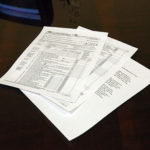Inflated value provided by client in bankruptcy schedules comes back to bite debtor when Chapter 13 plan collapses.
The client’s case was driven by substantial taxes and a vehicle she just had to keep. The asset mix included a timeshare which, even at the start of the recession, she valued at far more than I suspected it was worth. I challenged the client’s number, but didn’t persist in the face of her assurance that her purchase was truly worth that.
Fast forward 2 years. The recession worsens, her income slides and she can’t make the Chapter 13 payments. We’ve paid off the vehicle but put no dent in the taxes. Seems like a good fact pattern for a hardship discharge; discharge the unsecured debt now and when things get better, she’ll be able to file another Chapter 13 and get the taxes paid in the subsequent case.
But, because of the d@*!* timeshare and its inflated value, we can’t show that creditors have gotten at least what they would have in a Chapter 7.
It’s not fun, disabusing your clients of their illusions about the value of their assets. Whether it’s pride that keeps them from admitting that the thing isn’t worth nearly what they paid for it, or the desire to have some assets of value, they often cling to values that have no connection to the real world.
In this case, I didn’t swim up the stream of the client’s illusions to get a good value for something that is undoubtedly worthless. I allowed myself to think the value won’t matter, since the plan is committed to paying taxes far larger than the value of timeshare, even at the client’s number. I gave in and my life and that of my client is more complicated as a result.
Never again. Even old dogs can learn.
Image courtesy of Credit: California Department of Water Resources








